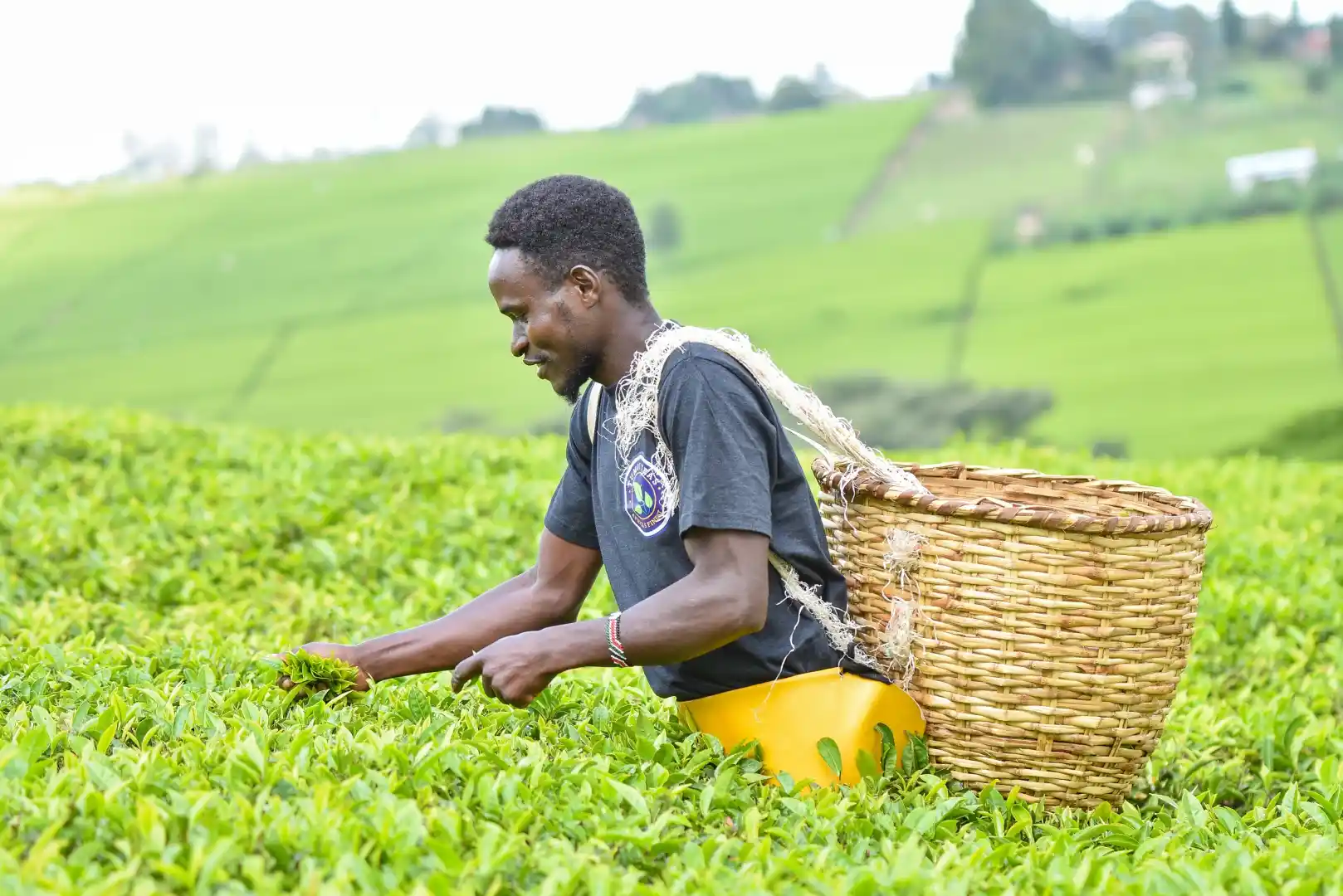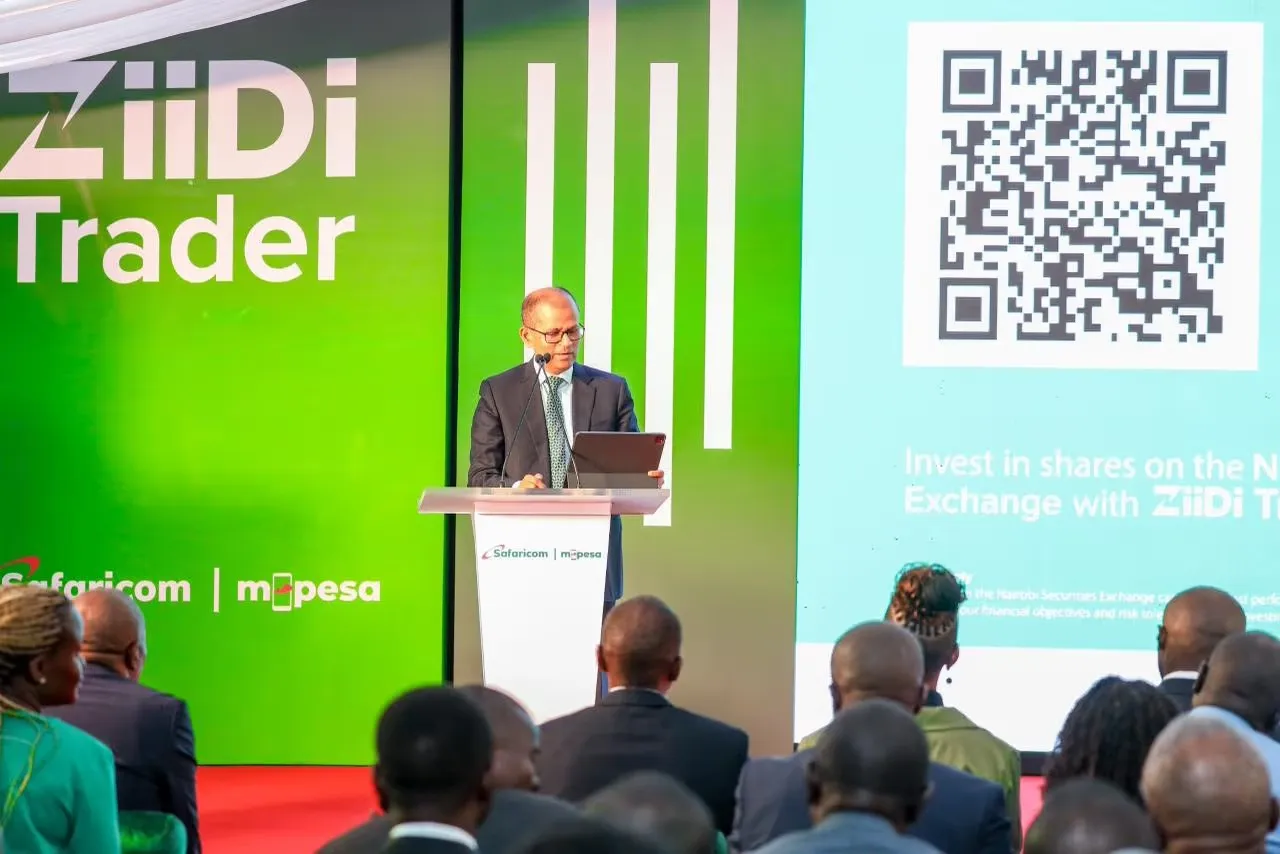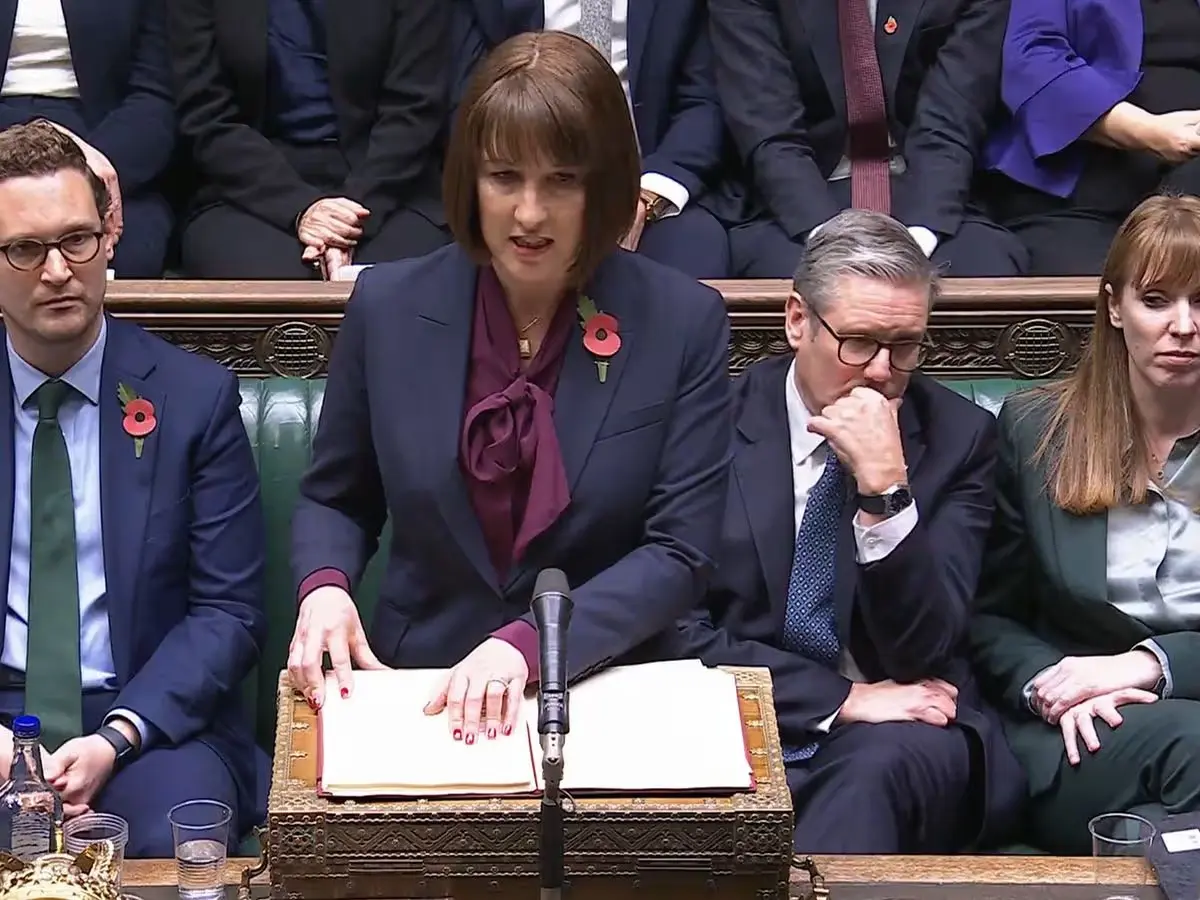In a move poised to significantly bolster its agricultural export sector, Kenya has received a major vote of confidence from the European Union (EU), which has officially classified the East African nation as a “low-risk” country under its stringent new anti-deforestation regulations. This critical reclassification is set to provide a substantial boost to Kenyan exporters, particularly those dealing in high-value agricultural commodities such as tea, coffee, cut flowers, and various other key crops, by considerably easing compliance burdens and fast-tracking their access to lucrative European markets.
The reassuring declaration came during a high-level meeting held at Kilimo House in Nairobi, bringing together Kenya’s Cabinet Secretary for Agriculture, Mutahi Kagwe, and the EU Ambassador to Kenya, Henriette Geiger. Ambassador Geiger’s assurances were aimed at allaying widespread fears within the Kenyan export community regarding the potential impact of the EU’s new regulations, confirming that Kenya’s environmental efforts position it favourably, exempting it from the most stringent assessment procedures. This collaborative engagement also underscored the EU’s commitment to ongoing consultations with its partner nations to meticulously evaluate the real-world implications of such far-reaching regulations.
This proactive classification by the EU is not merely a bureaucratic formality; it is a profound win for Kenya’s economy and its burgeoning agribusiness sector. By signalling adherence to sustainable environmental practices, it reinforces Kenya’s attractiveness as an investment destination, particularly for those focused on green value chains and climate-smart agriculture. Furthermore, the decision significantly strengthens Kenya’s already robust trade relationship with the EU, which remains its single largest export market. This positive reclassification could well pave the way for even more preferential trade arrangements in future negotiations and enhance the visibility and market share of premium Kenyan produce across European markets.
The New EU Deforestation Regulation (EUDR): A Global Game Changer
To fully grasp the magnitude of the EU’s decision, it is essential to understand the context and objectives of the European Union Deforestation Regulation (EUDR). Adopted in June 2023 and set to become fully applicable by December 2024 (with some grace periods), the EUDR is a landmark piece of legislation designed to ensure that a range of key products consumed by European citizens do not contribute to global deforestation or forest degradation.
The primary objective of the EUDR is to reduce the EU’s contribution to global deforestation and forest degradation, thereby promoting the consumption of “deforestation-free” products and reducing carbon emissions. This is part of the EU’s broader commitment to combating climate change and biodiversity loss. The regulation covers several crucial commodities and their derived products, which are identified as major drivers of deforestation globally. These include:
- Cattle (and beef products)
- Cocoa
- Coffee
- Palm oil
- Soy
- Wood
- Rubber
- Charcoal
- Printed paper products
For each of these commodities, and any products containing them or made from them, companies importing into or exporting from the EU market are required to conduct due diligence. This means they must verify that the products have not originated from land deforested or degraded after December 31, 2020. They must also ensure compliance with relevant local laws in the country of production, including human rights provisions. The due diligence process typically involves gathering information, conducting risk assessments, and implementing mitigation measures.
A crucial component of the EUDR is its risk classification system. The EU categorizes countries, or parts of countries, into low, standard, or high risk based on their deforestation rates, governance structures, and the effectiveness of their laws to protect forests.
- High-risk countries face the most stringent checks, requiring importers to conduct enhanced due diligence, with a higher percentage of their consignments subject to verification by customs.
- Standard-risk countries undergo regular due diligence.
- Low-risk countries, like Kenya is now classified, benefit from simplified due diligence procedures. This translates into less bureaucratic red tape, reduced documentation requirements, and expedited customs clearances, offering a significant competitive advantage for exporters. The financial implications for businesses in low-risk countries are considerable, as they save on compliance costs, auditing, and potential delays.
The EUDR’s introduction has sent ripples across global supply chains, prompting countries and companies worldwide to re-evaluate their environmental practices and traceability systems. For many developing nations that rely heavily on exporting the listed commodities to the EU, compliance has presented a significant challenge, requiring substantial investment in monitoring, data collection, and certification. Kenya’s proactive approach and subsequent low-risk classification therefore stand out as a testament to its forward-thinking environmental governance.
Kenya’s Green Credentials: Earning the ‘Low-Risk’ Label
Kenya’s classification as a low-risk nation is a direct reflection of its robust and ongoing commitment to environmental conservation, reforestation, and sustainable land management practices. The country has, in recent years, launched ambitious initiatives aimed at increasing its tree cover and combating deforestation, demonstrating a clear policy direction towards environmental stewardship.
A flagship initiative is Kenya’s 15 Billion Tree Campaign, launched with the ambitious goal of planting 15 billion trees by 2032 to restore 10.6 million hectares of deforested and degraded landscapes. This massive undertaking involves various government agencies, local communities, civil society organizations, and the private sector, emphasizing a participatory approach to environmental restoration. The campaign targets not only traditional forest areas but also integrates tree planting into agricultural landscapes, urban spaces, and arid and semi-arid regions.
Furthermore, Kenya has been actively promoting climate-smart agriculture (CSA) practices. CSA integrates adaptation and mitigation measures in agricultural systems to sustainably increase productivity, enhance resilience, and reduce greenhouse gas emissions. This includes practices like agroforestry, conservation agriculture, efficient water management, and diversified farming systems. The expansion of crops such as avocado and coffee, as noted by CS Mutahi Kagwe, actively contributes to reforestation and increased tree cover. Coffee, traditionally grown under shade trees, and avocado orchards contribute to biodiversity and carbon sequestration, aligning perfectly with the EUDR’s objectives.
Kenya also boasts a comprehensive legal and institutional framework for environmental management, including the Forest Act, Wildlife Conservation and Management Act, and various environmental regulations. Institutions like the Kenya Forest Service (KFS) are actively involved in forest conservation, restoration, and sustainable forest management. These efforts collectively demonstrate a proactive approach to environmental protection, which has evidently impressed the EU.
A Lifeline for Kenya’s Export Powerhouses
The “low-risk” classification provides a critical lifeline and competitive edge for several of Kenya’s most vital agricultural export sectors, which collectively generate significant foreign exchange and employment.
Tea: The Green Gold of Kenya
Kenya is the world’s third-largest producer of tea and a leading exporter, particularly of black tea. The tea industry is a cornerstone of the Kenyan economy, employing over 4 million people directly and indirectly and contributing significantly to agricultural GDP. The EU is a major market for Kenyan tea, known for its high quality and distinctive flavour. With tea being a commodity covered by EUDR (as a derived product of timber for packaging, or indirectly through land use changes), the low-risk classification eases the compliance burden for thousands of smallholder tea farmers and large tea estates alike. This ensures that Kenyan tea can continue to flow seamlessly into European cups without facing burdensome additional checks or market access restrictions, safeguarding a multi-billion-shilling industry.
Coffee: Kenya’s Aromatic Export
Kenyan coffee is renowned globally for its distinct bright acidity, complex fruitiness, and full body. It fetches premium prices in international markets, with the EU being a crucial destination. The coffee sector supports hundreds of thousands of smallholder farmers and generates substantial export earnings. As coffee is explicitly listed under the EUDR, the low-risk classification means that Kenyan coffee beans will not face the same rigorous traceability demands as those from higher-risk regions. This preserves Kenya’s competitive advantage in the specialty coffee market and protects the livelihoods of countless coffee farmers who have invested in sustainable farming practices. The assurance that their produce meets stringent environmental standards makes Kenyan coffee even more attractive to environmentally conscious European consumers and roasters.
Horticulture: The Vibrant Flower Power
Kenya’s horticulture sector, particularly its cut flower industry, is a global powerhouse. Kenya is one of the world’s largest exporters of cut flowers, primarily roses, to the EU. This sector contributes immensely to Kenya’s economy, provides direct employment for hundreds of thousands, and is a significant foreign exchange earner. Cut flowers, while not directly a commodity under EUDR, are often grown on land that might be subject to deforestation concerns, and their packaging relies on wood products. The “low-risk” status provides an overarching reassurance about the sustainability of Kenya’s agricultural production systems, which benefits the entire horticulture value chain.
This sector has, however, faced its own unique set of challenges related to EU regulations. One prominent example is the False Codling Moth (FCM), a pest that can affect various crops, including roses. Kenya has had to implement stringent phytosanitary measures to ensure its flower exports are free from FCM. The EU’s low-risk deforestation classification now adds another layer of confidence to Kenya’s compliance capabilities, reducing the overall regulatory burden and perception of risk for European buyers.
Strengthening the EU-Kenya Economic Partnership
The EU’s reclassification of Kenya as a low-risk nation under the EUDR is a powerful affirmation of the deepening trade relationship between the two entities. The EU consistently ranks as Kenya’s largest export market, underscoring its economic significance.
A critical framework underpinning this relationship is the EU-Kenya Economic Partnership Agreement (EPA). This comprehensive trade agreement, which officially came into effect on July 1, 2024, grants Kenyan goods duty-free and quota-free access to the vast EU market. This means Kenyan products can enter the EU without incurring tariffs and without quantity limitations, providing a significant competitive advantage over goods from countries without such agreements.
The low-risk deforestation classification now adds another layer of benefit to this already preferential arrangement. It enhances the competitive position of Kenyan exports within the EU by reducing the administrative and financial burden associated with compliance. This synergy could potentially pave the way for even more favourable trade discussions in the future, as Kenya’s reputation as a reliable and sustainable trading partner grows. For instance, future negotiations could explore opportunities for deeper integration, technical cooperation on sustainable agriculture, or even greater market access for new product categories. The visibility of Kenyan produce in European markets is also set to increase, as importers and consumers can confidently choose products knowing they adhere to high environmental standards.
Navigating the Complexities: Addressing ‘Shifting Goalposts’
While welcoming the positive reclassification, CS Mutahi Kagwe also voiced a crucial concern, cautioning against what he termed “shifting goalposts” that could jeopardize Kenya’s hard-won competitiveness in the European market. His remarks highlight a persistent tension between evolving international environmental and social standards and the practical realities faced by developing nations’ agricultural sectors.
“If you must shift the goalpost, provide support. These regulations increase the cost of production for Kenyan farmers,” Kagwe stated. This sentiment echoes a broader plea from developing countries that while they are committed to global environmental sustainability, the implementation of stringent new regulations by developed nations often comes with significant financial and technical burdens. Farmers, especially smallholder farmers who form the backbone of Kenya’s agricultural sector, may struggle to meet new traceability requirements, invest in new technologies, or obtain necessary certifications without adequate support. This can lead to increased production costs, making their products less competitive and potentially undermining the very livelihoods the regulations aim to protect indirectly.
CS Kagwe referenced the recent introduction of the deforestation law shortly after Kenya had successfully implemented the False Codling Moth (FCM) Systems Approach Protocol for rose flower exports. This serves as a potent example of how Kenyan farmers and authorities are continually adapting to new EU phytosanitary and environmental standards. Each new regulation, while potentially beneficial for the end consumer or the global environment, requires substantial investment in research, infrastructure, training, and compliance mechanisms within the exporting country. Without corresponding technical assistance, financial aid, or grace periods, these new requirements can become significant non-tariff barriers to trade. The concern is not about the goal of sustainability, but about the equitable distribution of the costs associated with achieving it.
Phytosanitary Prowess: The FCM Success Story and Ongoing Challenges
The meeting between CS Kagwe and Ambassador Geiger also provided an opportunity to review Kenya’s impressive strides in phytosanitary compliance, particularly concerning the False Codling Moth (FCM). The Kenya Plant Health Inspectorate Service (KEPHIS), the national institution responsible for assuring the quality of agricultural inputs and produce, plays a pivotal role in this regard.
For years, the FCM posed a significant threat to Kenya’s rose flower exports to the EU, leading to numerous interceptions at EU borders and raising concerns about market access. In response, Kenya implemented a rigorous Systems Approach Protocol. This protocol is a comprehensive set of phytosanitary measures applied throughout the production and export chain (from farm to packhouse to port) designed to mitigate the risk of pest infestation without requiring blanket chemical treatments. It involves stringent monitoring, pest control, inspection, and traceability systems.
The efforts have yielded remarkable results. KEPHIS reported a drastic reduction in flower interceptions at EU borders, with none recorded last month and only one this month. This success story is a testament to the effectiveness of the Systems Approach Protocol and Kenya’s unwavering commitment to strengthening its phytosanitary compliance. It has not only protected a vital export sector but also enhanced Kenya’s reputation as a reliable supplier of high-quality, pest-free horticultural products.
Despite this progress, Kenyan exporters have raised concerns over the current 25 per cent sampling rate for flower consignments. While acknowledging the need for checks, they argue that this rate is excessively high, leading to delays, increased operational costs, and potential damage to perishable goods. KEPHIS has formally urged the EU to consider reducing this sampling rate to a more practical level, ideally between 5 and 10 per cent, reflecting the proven low risk of FCM infestation. They have also called for the deployment of more EU inspectors to facilitate smoother and faster export processes at points of entry, further streamlining trade. Reducing the sampling rate would significantly improve the efficiency of exports, benefiting both Kenyan producers and European consumers by ensuring fresher produce reaches the market faster.
Attracting Green Investment and Fostering Sustainable Growth
Beyond the immediate trade benefits, Kenya’s “low-risk” deforestation classification carries significant implications for its investment climate, particularly in the agribusiness sector. International investors are increasingly prioritizing Environmental, Social, and Governance (ESG) factors in their investment decisions. A country that demonstrates strong environmental stewardship, like Kenya has, becomes inherently more attractive to responsible investors seeking to align their portfolios with sustainable development goals.
This classification signals to the global investment community that Kenya is a safe and favourable environment for green investments. It is likely to attract more capital into the country’s agribusiness sector, especially from entities focused on:
- Green Value Chains: Investments in agricultural supply chains that prioritize environmental sustainability, from farm to fork, including organic farming, water-efficient irrigation, and renewable energy use in processing.
- Climate-Smart Agriculture Technologies: Funding for innovations that enhance agricultural productivity and resilience to climate change, while reducing greenhouse gas emissions. This could include precision agriculture technologies, drought-resistant crop varieties, and sustainable livestock management.
- Sustainable Forestry and Agroforestry: Investment in commercial forestry that adheres to sustainable management principles and in agroforestry systems that integrate trees into farming landscapes, contributing to both economic and environmental benefits.
Such investments bring not only capital but also technology, expertise, and market linkages, further enhancing the competitiveness and sustainability of Kenya’s agricultural sector. This aligns with Kenya’s broader vision of becoming a green economy leader in Africa.
Conclusion: A Blueprint for Sustainable Trade
Kenya’s classification as a low-risk country under the EU’s new anti-deforestation regulations is a testament to its proactive environmental policies and a significant victory for its vital export-driven agricultural sector. This decision, conveyed during the high-level meeting between CS Kagwe and Ambassador Geiger, streamlines compliance for tea, coffee, flower, and other exporters, while simultaneously bolstering Kenya’s image as a sustainable investment destination.
The partnership with the EU, solidified by the Economic Partnership Agreement and now reinforced by this environmental classification, positions Kenya strongly in the global move towards sustainable sourcing. While concerns remain about the increasing cost burden of evolving regulations and the need for fair sampling rates, the overall outlook is positive. The success story of False Codling Moth control, coupled with the low-risk deforestation status, paints a picture of a nation committed to meeting global standards while striving to protect its farmers’ competitiveness.
This development could serve as a powerful blueprint for other African nations seeking to balance economic growth with environmental responsibility. As the world increasingly demands traceable, sustainably produced goods, Kenya’s proactive approach provides a compelling model for fostering mutually beneficial trade relationships that prioritize both prosperity and planetary health. The journey ahead will undoubtedly involve continued dialogue and adaptation, but Kenya’s position as a low-risk partner signals a promising future for its agricultural exports in the discerning European market and beyond.
Ready to take your career to the next level? Join our dynamic courses: ACCA, HESI A2, ATI TEAS 7 , HESI EXIT , NCLEX – RN and NCLEX – PN, Financial Literacy!🌟 Dive into a world of opportunities and empower yourself for success. Explore more at Serrari Ed and start your exciting journey today! ✨
Photo source: Google
By: Montel Kamau
Serrari Financial Analyst
18th June, 2025
Article, Financial and News Disclaimer
The Value of a Financial Advisor
While this article offers valuable insights, it is essential to recognize that personal finance can be highly complex and unique to each individual. A financial advisor provides professional expertise and personalized guidance to help you make well-informed decisions tailored to your specific circumstances and goals.
Beyond offering knowledge, a financial advisor serves as a trusted partner to help you stay disciplined, avoid common pitfalls, and remain focused on your long-term objectives. Their perspective and experience can complement your own efforts, enhancing your financial well-being and ensuring a more confident approach to managing your finances.
Disclaimer: This article is for informational purposes only and does not constitute financial advice. Readers are encouraged to consult a licensed financial advisor to obtain guidance specific to their financial situation.
Article and News Disclaimer
The information provided on www.serrarigroup.com is for general informational purposes only. While we strive to keep the information up to date and accurate, we make no representations or warranties of any kind, express or implied, about the completeness, accuracy, reliability, suitability, or availability with respect to the website or the information, products, services, or related graphics contained on the website for any purpose. Any reliance you place on such information is therefore strictly at your own risk.
www.serrarigroup.com is not responsible for any errors or omissions, or for the results obtained from the use of this information. All information on the website is provided on an as-is basis, with no guarantee of completeness, accuracy, timeliness, or of the results obtained from the use of this information, and without warranty of any kind, express or implied, including but not limited to warranties of performance, merchantability, and fitness for a particular purpose.
In no event will www.serrarigroup.com be liable to you or anyone else for any decision made or action taken in reliance on the information provided on the website or for any consequential, special, or similar damages, even if advised of the possibility of such damages.
The articles, news, and information presented on www.serrarigroup.com reflect the opinions of the respective authors and contributors and do not necessarily represent the views of the website or its management. Any views or opinions expressed are solely those of the individual authors and do not represent the website's views or opinions as a whole.
The content on www.serrarigroup.com may include links to external websites, which are provided for convenience and informational purposes only. We have no control over the nature, content, and availability of those sites. The inclusion of any links does not necessarily imply a recommendation or endorsement of the views expressed within them.
Every effort is made to keep the website up and running smoothly. However, www.serrarigroup.com takes no responsibility for, and will not be liable for, the website being temporarily unavailable due to technical issues beyond our control.
Please note that laws, regulations, and information can change rapidly, and we advise you to conduct further research and seek professional advice when necessary.
By using www.serrarigroup.com, you agree to this disclaimer and its terms. If you do not agree with this disclaimer, please do not use the website.
www.serrarigroup.com, reserves the right to update, modify, or remove any part of this disclaimer without prior notice. It is your responsibility to review this disclaimer periodically for changes.
Serrari Group 2025
















